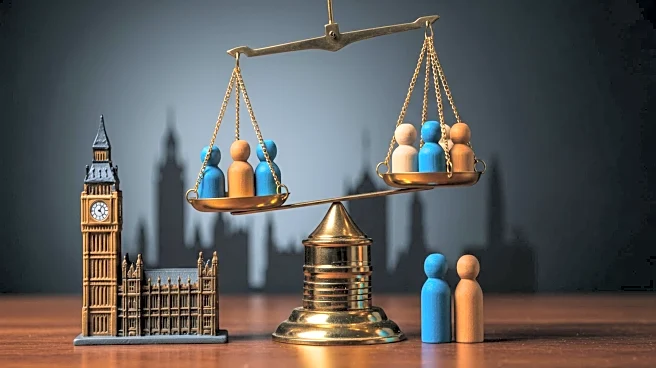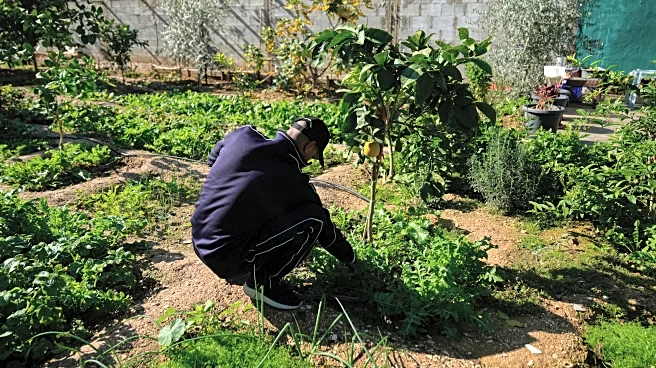What is the story about?
What's Happening?
The UK Parliament's e-petitions system, marking its 10th anniversary, continues to be a platform for public engagement, allowing citizens to voice concerns and influence political discourse. Despite the presence of humorous petitions, such as renaming raccoons 'Trash Pandas,' the system has seen significant petitions like 'Prevent Donald Trump from making a state visit to the UK,' which garnered 1.9 million signatures. While some petitions have led to legislative changes, such as Finn's Law for police service animals, others have highlighted public discontent without resulting in immediate policy shifts. The system remains a bridge between the public and Parliament, enabling citizens to participate in democracy beyond elections.
Why It's Important?
The e-petitions system plays a crucial role in democratic engagement, providing a direct channel for citizens to influence parliamentary agendas. Successful petitions can lead to debates and potential policy changes, reflecting public sentiment and priorities. However, the system's effectiveness is debated, with critics arguing it offers an illusion of influence without substantial outcomes. The ability to mobilize public opinion through petitions underscores their potential impact on political processes and societal issues, highlighting the importance of civic participation in shaping governance.
What's Next?
The future of the e-petitions system may involve reforms to enhance its effectiveness and responsiveness to public concerns. Discussions on improving the system could focus on increasing transparency and accountability in government responses to petitions. Additionally, the system's role in facilitating public engagement may evolve, potentially integrating new technologies to broaden participation and streamline the petitioning process.
Beyond the Headlines
The prevalence of joke petitions reflects broader societal attitudes towards political engagement, suggesting a need for more meaningful avenues for public involvement. The system's limitations may prompt discussions on alternative methods for citizens to influence policy, such as participatory budgeting or citizen assemblies. The cultural phenomenon of petitioning also highlights the intersection of humor and activism, illustrating how satire can be used to critique and engage with political systems.














